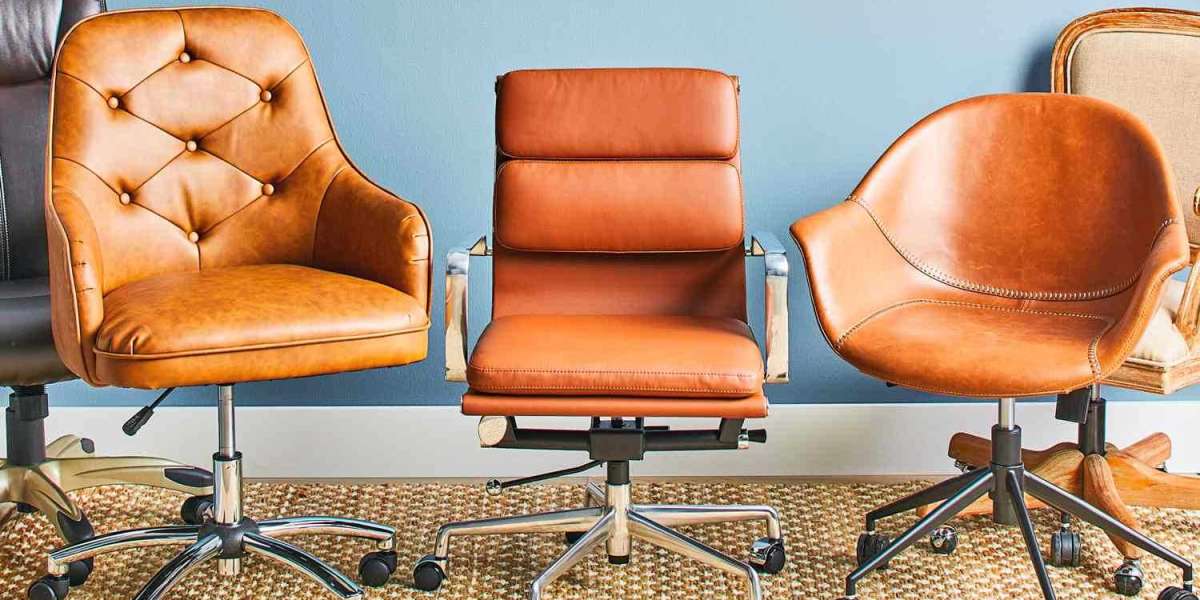In today’s dynamic workplace, personalization plays a crucial role in how employees engage with their office environment. Office furniture that caters to individual preferences and work styles not only enhances comfort but also contributes to higher productivity, job satisfaction, and overall well-being. Here’s why personalization is important when selecting office furniture and how it benefits both employees and organizations.
1. Enhances Employee Comfort and Well-being
One of the most significant benefits of personalized office furniture is improved comfort, which directly impacts employee health and well-being. Furniture that can be adjusted to meet individual needs—such as height, posture, and personal space—helps prevent common workplace issues like back pain, neck strain, and fatigue.
- Personalization examples:
- Ergonomic chairs with adjustable lumbar support, armrests, and seat height to suit different body types.
- Sit-stand desks that allow employees to alternate between sitting and standing, reducing the health risks associated with prolonged sitting.
- Footrests, monitor stands, and keyboard trays to help employees achieve proper posture and avoid strain.
By investing in furniture that adapts to individual needs, organizations demonstrate a commitment to employee well-being, leading to fewer health issues and a more energized workforce.
2. Boosts Productivity and Focus
When employees have control over their workspace setup, they are more likely to feel comfortable, focused, and productive. Personalizing furniture to fit specific work styles allows employees to create a work environment that supports their unique tasks and preferences.
- Personalization examples:
- Desks with adjustable work surfaces for optimal organization and space efficiency.
- Task lighting that can be adjusted to the preferred brightness level for different types of work.
- Customizable storage solutions that allow employees to arrange their supplies and tools in a way that supports their workflow.
A personalized workspace eliminates unnecessary distractions and enhances an employee's ability to concentrate, ultimately improving productivity levels.
3. Encourages Employee Engagement and Satisfaction
Personalization in office furniture contributes to a sense of ownership and control over the work environment. When employees can tailor their workspace to their liking, they feel more invested and comfortable in their surroundings, which can lead to increased engagement and job satisfaction.
- Personalization examples:
- Allowing employees to choose between different styles of desks or seating options to match their preferences.
- Providing decorative elements like personal whiteboards, pinboards, or storage organizers that reflect an employee’s personality.
- Offering color choices in chairs, accessories, or desk partitions to bring a personal touch to the office design.
This level of engagement not only boosts morale but also encourages creativity and collaboration, as employees feel more comfortable expressing themselves in their personalized spaces.
4. Accommodates Diverse Work Styles and Needs
Today’s workforce is diverse, with employees bringing varied work habits, roles, and needs. Some may prefer quiet, focused spaces, while others thrive in collaborative environments. Personalizing office furniture helps cater to this diversity, allowing for multiple work styles to coexist harmoniously.
- Personalization examples:
- Movable privacy screens or acoustic panels for employees who need quiet, distraction-free areas.
- Collaborative workstations for teams that work best in an open, shared environment.
- Adjustable desks and seating for employees who prefer a more dynamic work experience, switching between solo tasks and group discussions.
By offering furniture that adapts to different work styles, organizations can create a flexible, inclusive environment where employees can work in the way that best suits them.
5. Supports Flexibility in Hybrid Work Environments
As hybrid and remote work become more common, personalized office furniture is key to supporting employees who work both from home and the office. Flexible furniture solutions allow employees to seamlessly transition between different workspaces without compromising comfort or productivity.
- Personalization examples:
- Portable or adjustable desks that employees can customize whether they are at home or in the office.
- Compact, multi-functional furniture that maximizes space for employees working in smaller home offices.
- Customizable seating solutions, such as lightweight chairs that can easily be moved or adjusted depending on the location.
This flexibility ensures that employees remain comfortable and efficient, regardless of where they work, supporting overall productivity and satisfaction.
6. Reflects Company Culture and Brand
Personalized office furniture can be aligned with a company’s brand and culture, creating a workspace that reflects the organization’s identity. Whether it’s through specific color schemes, design aesthetics, or furniture styles, personalization helps reinforce company values and create a cohesive environment.
- Personalization examples:
- Custom-branded furniture, such as desks, chairs, and accessories in the company’s signature colors or logo.
- Unique furniture styles that reflect the company’s ethos—minimalist designs for tech companies, or sustainable, eco-friendly furniture for environmentally conscious organizations.
- Team-oriented workspaces with personalized touches that promote collaboration, creativity, or innovation based on the company’s values.
Employees are more likely to feel a sense of belonging and pride when their work environment aligns with the company’s identity, fostering a stronger connection to the organization’s mission.
7. Improves Retention and Recruitment
Offering personalized workspaces and furniture shows that a company values its employees’ individual needs and well-being. This can be a key factor in attracting top talent and retaining existing employees, especially in competitive industries.
- Personalization examples:
- Customizable workstations that give new hires the flexibility to set up their space to suit their working preferences.
- Providing ergonomic furniture as part of the standard office setup, which shows a commitment to long-term employee health.
- Allowing employees to personalize their desk areas, adding plants, photos, or artwork to make their space feel more like home.
Creating an environment that prioritizes personalization demonstrates to potential and current employees that the company is invested in their comfort and success, making it a more attractive place to work.
Conclusion
Personalizing office furniture is essential in today’s workplace to create a comfortable, productive, and engaging environment. By offering flexible, ergonomic, and customizable furniture, businesses can enhance employee well-being, accommodate diverse work styles, and reflect company culture. This ultimately leads to improved job satisfaction, productivity, and a stronger sense of connection between employees and the organization. Personalization is no longer a luxury—it’s a necessity for modern office design.








